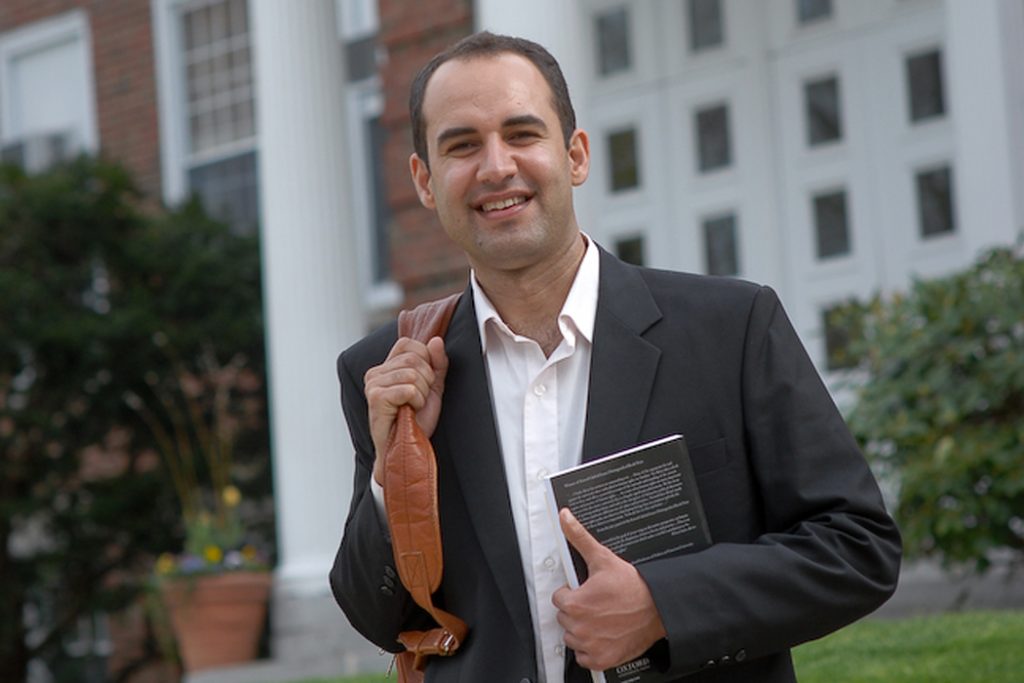Ahmed Rasikh (LLB, University of Kabul) was the first Afghan student in BC Law’s LLM program. He did development work for the US, UN, and Red Cross in Afghanistan, and plans to return. He doesn’t rule out a career in politics. As a boy, he fled Kabul with his family to avoid civil war. When the Taliban invaded the town they had fled to, he and his father made a fourteen-hour trek over snow-covered mountains so he could continue attending school. Rasikh’s father is a government publications manager. His mother teaches school—coed classes in communist times, single-sex classes ever since.
Did working with foreigners put you in danger?
Three months before September 11, the Taliban began imprisoning the staff of the agency where I was working. They accused us of practicing Christianity. I learned of it in time and was able to flee to Pakistan. I didn’t return until the Taliban were overthrown.
Why study law?
Everyone in Afghanistan talks about law, especially the educated classes. They see law as a solution to the country’s problems. Afghanistan does have very good laws. What we do not have is rule of law. Our legal system is politicized and nepotistic.
What was it like to come to the US?
Back home if you go out, you never know if you’ll return. Here you feel safe, psychologically and physically.
What have you gotten from the LLM program?
A new perspective on law. We have courses that are unavailable at home, such as International Human Rights. I’ve also learned about this country’s dual state-federal legal system. Afghanistan’s political and legal systems have always been very centralized. People in the provinces are forced to accept central governmental rule, and that fuels the insurgency. So moving to a US-style federal system might help Afghanistan.
Have you ever experienced human rights violations?
A few years ago, I got into a small traffic accident. It wasn’t my fault, but I was put in prison because I refused to bribe the police. It took a month before I saw a judge and was released on bail. The prisons are really bad. The guards can use violence against you. There is no restraint.
What about the human rights of Afghan women?
Afghan women have no access to education. If they’re allowed to attend school, they have to marry when they finish, and not attend university. If they go to university, they’re not allowed to work. There are forced marriages, especially in rural areas. There is domestic violence. Some women self-immolate to escape these conditions. It will take political courage from leadership to change women’s lives.


